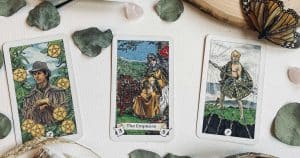
The Golden Rule is a simple phrase captured in the Bible (Matthew 7:12):
“Do unto others as you would have them do unto you.”
It was first published this way word for word in English over 450 years ago. Its roots run much deeper and its evolution is not only an historical odyssey, it is a window into the advancement of higher human consciousness.
In studies of spirituality across all cultures, it is easy to demarcate when the transformation of a people’s spiritual component switched from following laws in order to have a reliable social structure to learning to love. This is the point in their cultural evolution when they were strong enough as a people to give up power in order for all of humanity to hopefully advance along with them.
This point, identified by the moment when the Golden Rule was comprehended and aspired to by a majority of the populace, stretches back to some of humanity’s earliest recorded civilizations.
Babylon
In ancient Babylon, there was the code of Hammurabi:
“An eye for an eye, a tooth for a tooth.”
While this edict’s fixation on retribution makes it a far cry from the Golden Rule, it is mankind’s first attempt at equality. By focusing on those who have been wronged, Hammurabi’s code elevated the consciousness of man out of the primitive and fierce law of the jungle: “Kill or be killed.”
Egypt
A thousand years later, the advancement of human consciousness is evidenced by the development of a cosmic structure that the Egyptians called “Maat.” In Egyptian lore, this system was handed down from the gods to man and the pharaoh was the personification of Maat. The chief purpose of this system was to instill order against the chaos that otherwise permeated the universe. Rather than a code of justice, Maat was seen as a balance to be applied in order to restore harmony to society and thus to the universe. It was a combination of the sacred and the legal. The basis of the Golden Rule’s equality is summed up by a simple explanation of Maat that the Egyptians attributed to their creator:
“I made every man like his fellow.”
Humanity’s evolution of consciousness is thusly illustrated. Maat is based not on what one did that was wrong during one’s life, but on one’s inherent equality.
India
The notion of karma comes from India. It is the belief that every act one does will revisit him or her. The belief in reincarnation also explains what happens to good people who do not necessarily see their good acts repaid in this lifetime: they are reborn under better circumstances. The workings of karma were first explained in the Mahabharata, a poem of almost 2 million words composed in Sanskrit in ancient India. The core teaching derived from this work parallels the Golden Rule’s concept in other cultures:
“You must never do that to another which you regard as injurious to yourself.”
We see the evolution of consciousness here surpass simple equality to the realm of mutual respect – the highest aspirations of law and spirituality are meeting at a place where our personal conduct is integrated in our treatment of others. These small steps over the centuries lessened our barbaric impulses, simply by applying the wisest ideas about the common good that could be articulated by the spiritual leaders of their times.
China
While the concept of karma was advancing spiritual growth in India, the great Chinese philosopher united China with his wisdom, offering a way of life that privileged social harmony and personal accountability. Confucius taught:
“Never impose on people what you would not choose for yourself.”
The consistency of his teachings still influences the core of the Chinese legal system and social structure, despite many revolutions over the millennia.
Greece
Human spirituality advanced based on the notion that our fellow human beings deserve a fundamental respect; this sentiment was being codified into practice more and more in the ancient world. But the great philosopher of ancient Greece, Plato, took this one step further. He insisted that there was no point in ever seeking vengeance for a wrong done to you:
“One should never do wrong in return, nor mistreat any man, no matter how one has been mistreated by him.”
The shift may seem subtle, but it is actually revolutionary. Hammurabi’s code of equitable vengeance as a suitable symbol for each man’s equality has been abolished in a new consciousness of seeking harmony by simply ignoring any and all wrongs done to us and refusing to lower ourselves to the level of the one doing the mistreating.
Roman-Occupied Judea
When Jesus Christ taught his disciples the Golden Rule, he specifically referenced Hammurabi’s code as no longer applying. When he told his followers to love their neighbor as themselves, a man in the crowd attempted to trick him and asked what he meant by “neighbor,” to which Christ delivered the story of the Good Samaritan. Samaritans were despised by Judeans, and so in illustrating that a man from a hostile tribe was capable of not just avoiding the injury of his fellow men but was actively aiding the needy, Christ insisted on a higher consciousness among his followers and a sensitivity to all people.
Christ upped the demands on individual accountability by insisting that those who are wronged were to:
“Turn the other cheek.”
This defiant advocacy of meekness represented a much higher spiritual consciousness than the world was ready for then, and sadly, is still not ready for today.
Modern Life
No philosopher has managed to surpass the higher consciousness of turning the other cheek, but a few activists have actually lived these words in order to illustrate their power. Mahatma Gandhi led a nonviolent revolution against colonial rule. With his simple message of passive resistance he brought down the world’s then-mightiest army without firing a single shot.
In America, Martin Luther King Jr. took the Golden Rule and elevated it with a message of nonviolence, demanding that the 1960s civil rights movement be won with faith and positive action rather than through violent revolutionary activity. Although he himself was murdered, his advocacy of the Golden Rule spiritually enlightened a divided America into a more diverse and accepting society.











